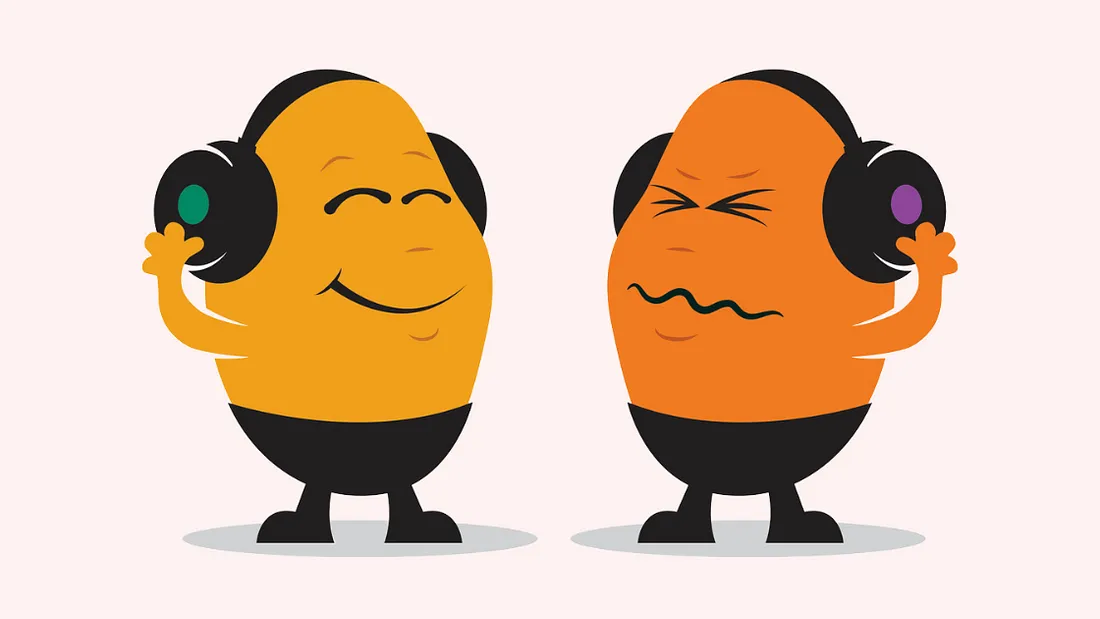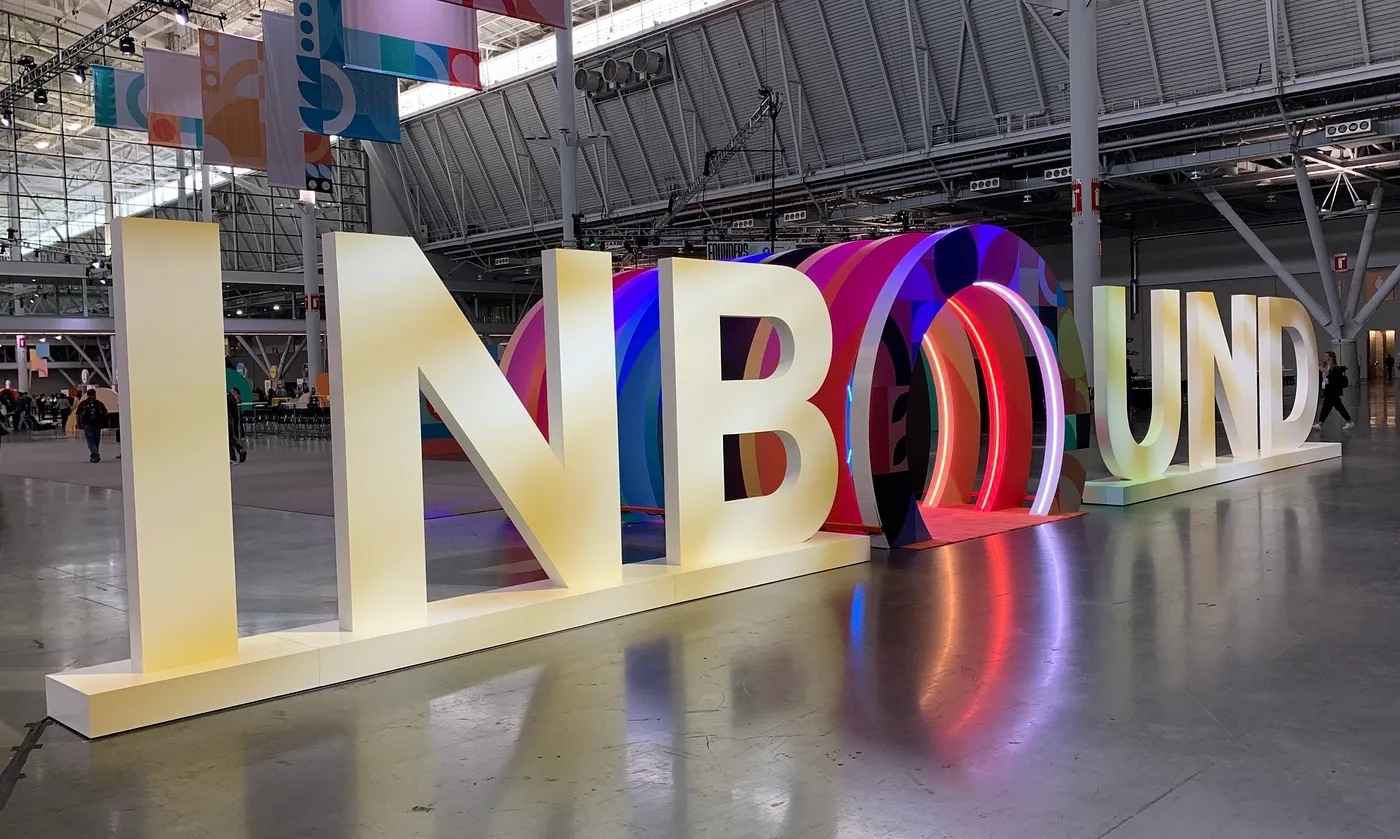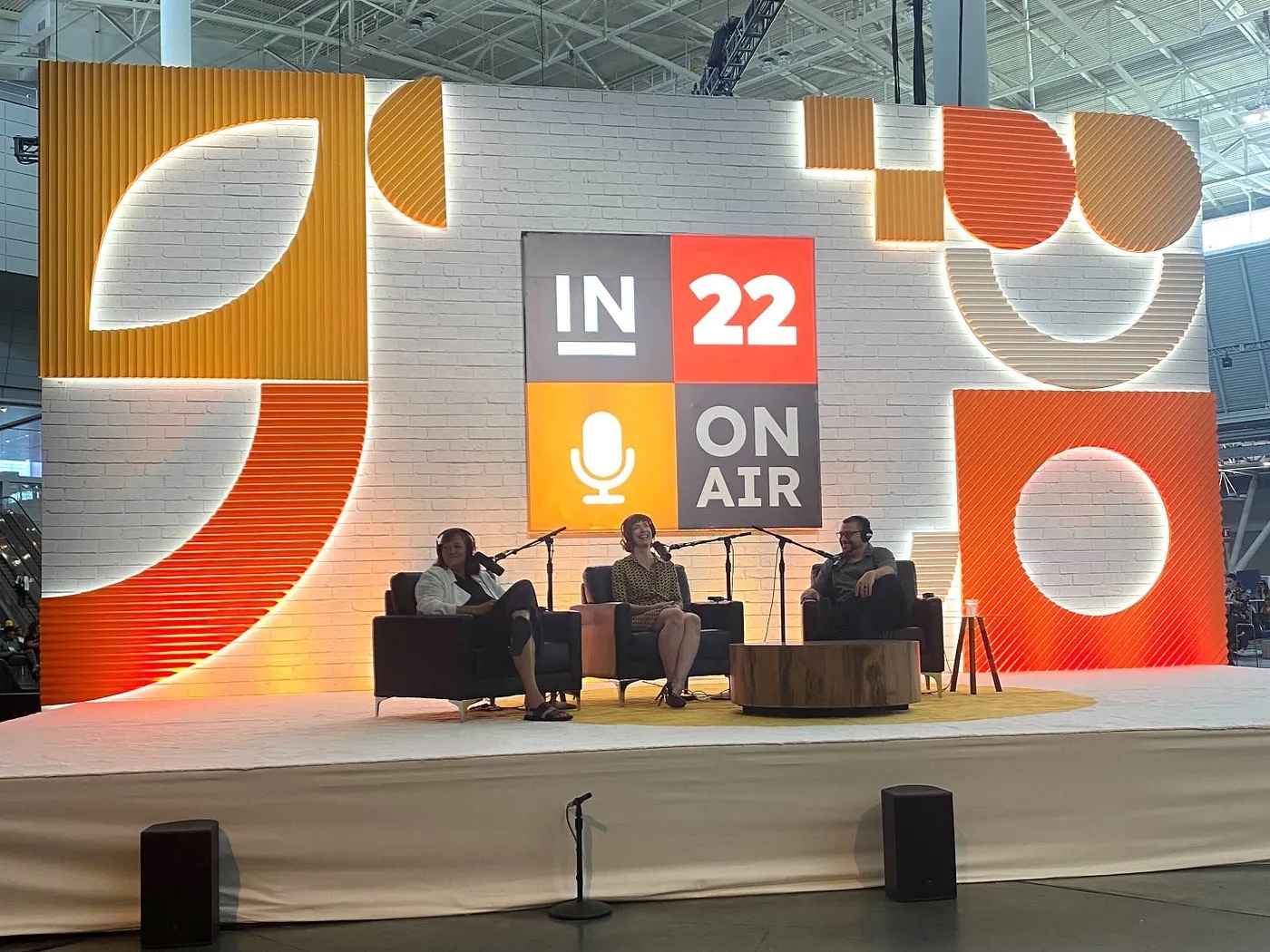Two Reasons Why You Shouldn’t Make a Podcast for Your Brand

If you’re in communications and marketing for a brand, it’s likely to come up.
“We should make a podcast!”
Someone on your team is a podcast superfan, talking your ear off about the latest episode of something or other, and how excited they are for season two to drop.
And it’s buzzy. They’ve no doubt heard about the marketing successes other brands have had putting out a show. It’ll even get you in the pages of Adweek if you’re lucky.
So maybe it’s you bringing it up. Maybe it’s your CEO. But no matter who is urging you to jump on the bandwagon, the first question you should ask is “why?”
That was the kick-off question put to me and my fellow panelist Michael Gilday at INBOUND 2022.

Moderator Nadjya Ghausi set it up this way for the 21,000 or so marketers and B2B communicators who attended the conference.
“As a CMO, I am always thinking about content, the more authentic the better, and finding ways to creatively leverage it across channels. The medium of a podcast is a bit different — more intimate of an experience,” she said, saying some brands get an “almost cult-like following” for their podcasts.
Before hitting us with the “why or why not” opener, Nadjya quoted a Fast Company article calling branded podcasts “the ads people want to listen to.”
And that’s where we got started.

Reason Number 1 not to make a podcast for your brand
Are branded podcasts advertisements? Are they sales tools, marketing or something else?
Michael has been making a thought leadership podcast on AI with Data Robot (previously as an in-house creator and more recently as an independent founder of a creative agency). His response was this:
“Podcasts are unique. Some have argued they are the most intimate kind of media that exists today. A well-crafted podcast is like listening in on a fascinating private conversation. A weak sales pitch breaks that illusion almost immediately,” he said. “You are asking a lot of your audience when you create long-form content. The content needs to be immediately engaging, thought-provoking, novel, and fulfilling.”
Score one for “not advertising.”
A counterpoint to this came in response to a LinkedIn message I posted about the INBOUND session. It comes from John Ville, Director of Content Marketing at OneTrust and someone we’ve partnered with in previous gigs in the past.
His view on whether podcasts are ads? “Good ones kind of do both? Educate audiences about what the brand stands for while encouraging them to dive deeper into what they offer practically.”
Okay, I’ll give you the dual purpose, but I’m still going to put branded podcasting outside the actual advertising sphere even though they may do some similar things. A caveat, advertising in podcasts for your product and of course for your podcast has a lot of payoffs. No dissing the power of podcast advertising here.
But the podcast itself? That’s something different. If you look at how podcast advertising can be most effective, it’s because of the affinity listeners have for the show the ads are contained in: the trust for the content curation, the endorsement of the host, and so on. Listeners love the show and therefore they will not dismiss the ad.
But podcasting is the most voluntary of mediums. Listeners have to find a platform and put it on their device, search through a couple of million podcasts to find a show, and then crucially, they have to spend the time to listen.
You might get someone to try out an episode of your branded show if it’s all traditional sales language top to bottom, and the payoff at the end is “buy my product,” but if that’s the entirety of the show experience, they aren’t going to follow you, come back and spend time with you, and build any kind of loyalty.
You need to make a show that they choose to listen to if you want to build that connection.
Give them a show they love, and they will reward you with their time and their attention. We have benchmarks for our shows that measure engagement times in tens of minutes, not tens of seconds which is what you typically might see on traditional corporate marketing video campaigns.
Reason Number 2 not to make a podcast for your brand
“Don’t do a podcast just to check a box,” says Michael Gilday. “It’s too much work. If you care about something deeply, and it’s related to your industry, then create a thought leadership podcast around that. Your passion will be infectious and you will create content that resonates deeply with your audience. The ‘why’ is incredibly important when producing a podcast, nail the ‘why’ and then the ‘what’ and the ‘how’ can flow from that.”
During the panel discussion, I was practically cheering as he described how he wanted listeners to be all like “Wheeeeeeeee!” when you drop a new episode of your show because you have created an experience that is that engaging for them.
They aren’t going to get that feeling of excitement from your show if it’s a chore that you are completing just because “insert name your successful competitor here” is doing it and you are going through the motions just to churn out content.
And I like what Michael calls out there. It’s too much work to make a show if you aren’t going to fully commit. It won’t have the payoff you’re looking for and will take up time and resources you could spend elsewhere.
If you think about podcasts as a unique arrow in your quiver, this can help you decide if you should make a podcast for the right reasons.
If you want to turn your annual shareholder report into an “audiobook” version or try to make a new research study more interesting by mixing a music bed under a list of stats, you aren’t playing to the strengths of podcasting. If you have numbers to report, charts and visualizations will play much better and be a better payoff for your dollar.
Podcasts are best at storytelling and emotion. Humans hear meaning in sound: the hiss of a snake means danger, the sizzle of heat means pain, and you can tell from the catch in someone’s voice if they are going to laugh or cry without even seeing them.
Podcasts capitalize on this, by whispering in the ears of listeners, creating that “intimate” experience that Nadjya referenced in her opening remarks. It takes some fortitude as a brand to fend off internal stakeholder requests to “add more product” to the show, or “make the wordmark bigger” in the episode art, and use podcasting for what it’s best at instead of trying to shoe-horn in traditional corporate communication elements.
And brands don’t get buzz by just putting out an award-winning show. They also need to put in the work to put it in front of the right people. Who are the audiences you want to reach? What resources do you have to get this show into their eardrums? Maybe you turn your show into an arcade game for in-person events. Maybe you use your product as a platform for the podcast instead of the other way around. However you do it, you need to be creative and you need to be brave.
So if someone on your marketing team comes to you and says “Look, Charles Schwab and Mozilla Foundation and OnStar are all making podcasts and we should too,” that alone isn’t reason enough to lay down your hard-fought marketing bucks and spend your precious time to make a podcast for your brand. You have to really get behind it.
Okay — Taking stock in our tally of why brands shouldn’t podcast, we’ve established it’s not to make an ad, and it’s not an exercise in box-checking.
So why SHOULD brands make a podcast?
Using marketing language I’d call it “brand extension,” but using more everyday parlance it’s something else.
For context here, we know from industry research that podcasting is increasingly popular. We know that it does some things extremely well. And crucially for this next part, we know why people choose to listen to podcasts: They want to be entertained. They want to learn something new about something they care about. And more and more people say they listen to podcasts because they are looking for companionship.
That’s the best reason to make a podcast for your brand: connection.
The reasons that people say they listen to podcasts speak to an emotional ask, and something traditional advertising has known for a long time is that you rarely answer an emotional ask with a tactical answer.
A product or service doesn’t indelibly imprint a brand on your psyche. If it did, it wouldn’t matter whether the nearest coffee shop to you was a Starbucks or a Tim Horton’s or a Blue Bottle, you just want the coffee. Instead, you walk two blocks out of the way to get the experiential payoff that you are looking for along with your coffee. Maybe it’s the speed of service and a doughnut, maybe it’s a chuckle when the barista spells your name wrong to hilarious effect. Whatever it is, it’s the values delivered by the experience and not just the actual product that builds connection. That’s what leaves you feeling something that lingers after the coffee is gone.
Audio storytelling does this incredibly well. It hooks us in by speaking to our values. It creates an experience that rings all our emotional bells. We are immersed in it. When done right, it leaves us wanting more. If you make a show that amplifies your brand values in a way that is authentic and delightful, that will resonate with people who share those values with you.
If you do this well as a brand, you get invited right into the worlds of the people you most want to talk to. It’s a medium that keeps them company on their dog walk, their boring subway ride, or while they do the dishes.
Talk about brand extension. Your brand is literally extending into parts of their lives that other forms of corporate communication can’t be in.
While I was at INBOUND I got a chance to hear Atlassian’s CMO Robert Chatwani speak about how his company builds connections with customers so they aren’t just users of a product, but become brand champions. He said the key to building this kind of relationship with potential clients is to “know them, show them you know them, and show them that you care.”
Atlassian has had some great success with its podcasts. While Robert wasn’t talking about Teamistry or Work Check specifically when he mentioned this philosophy of connection, I can’t think of a better reason to make a podcast for your brand.
Know who you want to connect with.
Show them you know what will engage and delight them. And show them you care by making them a show about the values you share.
That’s what builds a connection between a podcast and an audience.
Do that, and you have the best possible answer to the question “why make a podcast as a brand?”
Sign up for the Pacific Content Newsletter: audio strategy, analysis, and insight in your inbox.
